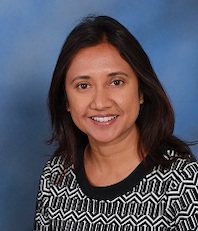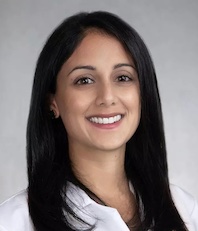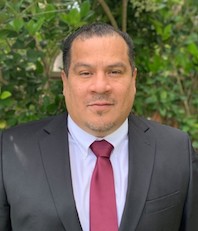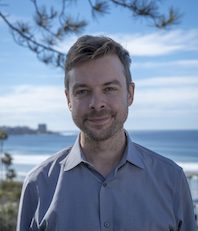-

Hiutung Chu, PhD
Assistant Professor, Department of Pathology
About the Awardee: Dr. Chu is a graduate of University of California, Berkeley where she completed her BS degree in Microbial & Environmental Biology, and received her PhD degree in Immunology from University of California, Davis. She completed a postdoctoral fellowship in mucosal immunology and the gut microbiome at the California Institute of Technology. Dr. Chu leads a basic research laboratory studying how commensal bacteria modulate host immune responses during health and disease. She is a CIFAR Azrieli Global Scholar in Humans & the Microbiome.
-

Mamata Sivagnanam, MD
Associate Professor, Department of Pediatrics
About the Awardee: Dr. Sivagnanam completed medical school at the University of Miami and fellowship in Pediatric Gastroenterology and Nutrition at UCSD. She enjoys seeing a broad range pediatric and adolescent patients, who inform her research goal of understanding the underpinnings of GI diseases in children. Dr. Sivagnanam leads a basic science laboratory studying diseases of the intestinal epithelium and their effect on intestinal epithelial physiology. More broadly, she hopes to gain a better understanding of the nuanced role of the intestinal epithelium in health and disease. She understands the urgent need for expanded research and advancement in therapeutic options. She is contributing to this need utilizing innovative, murine, human and enteroid models. These models allow for deeper clarity into healthy and disease of the gut. The ultimate goal is elucidation of the pathophysiology of mucosal diseases to allow for development of therapeutic options.
Pilot Funds
2019–2020 Awardees
Digestive Diseases Collaborative Awards (2 x $50,000):
The SDDRC in collaboration with the Mother-Milk-Infant Center of Research Excellence (MOMI CORE) and the Center for Mucosal Immunology, Allergy and Vaccine (cMAV) at UC San Diego has now awarded collaborative pilot grants to foster cross-disciplinary research in digestive diseases. The goal of this new initiative is to bring together complementary approaches and technologies to address a major challenge in digestive health and diseases.
Project Title: "Mini Guts: Understanding the Effects of Bacteria and Human Milk on Intestinal Health"
Summary: The maintenance of intestinal health requires an intact gut barrier separating our body and immune system from the external environment. Once this barrier is disrupted, the immune system becomes exposed to intestinal microbes, toxins, and other factors found in the gut lumen. Chronic barrier dysfunction has been linked to various inflammatory microbiome-mediated diseases. This collaborative proposal aims to leverage our expertise to explore the interactions between gut bacteria and human milk bioactives in promoting intestinal homeostasis and gut physiology using human enteroid models. Identification of effective human milk bioactives will advance our understanding of how human milk impacts the breastfed infant, aid the development of protective nutritional supplements for combating chronic diseases, and expand our knowledge of host-microbiota-diet interactions.
Digestive Diseases Innovative Awards (2 x $50,000):
The SDDRC has awarded pilot grants to promote innovative research in digestive diseases. This year's awardees are:
-

Rena Yadlapati, MD
Associate Professor, Department of Medicine
About the Awardee: Dr. Yadlapati is an esophagologist and physician-scientist aspiring to discover novel treat to mechanism paradigms for diagnosis and management of esophageal conditions. Dr. Yadlapati completed her adult gastroenterology fellowship, T32 fellowship in GI physiology and psychology, advanced clinical fellowship in esophageal diseases, and Masters in health services & outcomes research between 2013-2017 at Northwestern University and was on faculty at the University of Colorado between 2017-2019, prior to joining UCSD as an Associate Professor in July 2019. Dr. Yadlapati’s research program at UCSD focuses on diagnostic biomarkers and patient reported outcomes in gastroesophageal reflux disease and laryngopharyngeal reflux, and she is currently the PI of a 3-year ACG Junior Faculty Development Award and Co-Investigator of an NIDDK R01 grant. Dr. Yadlapati’s research activities also include serving as a formal GRADE methodologist for national guidelines and international consensus development for esophageal diseases.
Project Title: "The Oral Microbiome in Esophago-Pharyngeal Reflux"
Summary: An incomplete mechanistic understanding of symptom generation in laryngopharyngeal reflux (LPR) has led to poor health outcomes, inappropriate resource utilization, and tremendous healthcare costs. Modulation of the oral microbiome may be a mechanistic link between esophago-pharyngeal reflux and LPR symptoms (i.e., voice hoarseness, throat clearing). Similar to other digestive conditions, it is possible that chronic exposure of gastric refluxate at the hypopharynx influences the oral microbiota, which thereby exerts pro-inflammatory effects. To study this hypothesis, this SDDRC Pilot & Feasibility project will utilize cutting-edge microbiome sequencing techniques to characterize the oral microbiome among healthy subjects and subjects with LPR symptoms, as well as examine the oral microbiome in relation to other salivary biomarkers (i.e., pepsin) and outcome response to LPR therapy. This first-of-its-kind clinical-translational research will examine a novel mechanistic pathway of LPR, and provide preliminary data to further examine mechanisms of chronic inflammation at the laryngeal epithelium and test therapeutic strategies to modulate the oral microbiome in LPR.
-

Debanjan Dhar, PhD
Assistant Professor, Department of Medicine
About the Awardee: Debanjan Dhar received his Ph.D. degree from the Saint Louis University School of Medicine, Missouri and was subsequently trained as a post-doctoral fellow in Dr. Michael Karin’s laboratory at UCSD. He is currently an Assistant Professor in the Department of Medicine, division of Gastroenterology at UCSD. His major interest is to conduct basic and applied research with a focus on liver diseases such as Non-alcoholic steatohepatitis (NASH), fibrosis and hepatocellular carcinoma (HCC). Debanjan’s goal is to elucidate the molecular mechanisms underlying NASH development and HCC initiation and devise new therapeutic strategies.
Project Title: "The Role of TREM2/TyroBP+ Macrophages in NASH Development"
Summary: Non-alcoholic fatty liver disease (NAFLD) is the most common cause of chronic liver disease worldwide. About 10-20% of NAFLD patients exhibit non-alcoholic steatohepatitis (NASH), which is a severe and chronic liver inflammation. We found upregulated expression of a cell surface receptor TREM2 and its signaling partner TyroBP in both mouse and human NASH livers. The roles of TREM2 and TyroBP in NASH pathology remains elusive. Given the clinical importance of NAFLD and the current lack of effective medications to prevent or reverse the disease progression in patients with NASH, this study will take advantage of an animal model that mimics NASH associated fibrosis and HCC to evaluate the role of TREM2 and TyroBP in NASH progression. The completion of the proposed study will provide strong preclinical data that will guide the development of novel therapeutic approaches to treat human NASH and/or HCC.
Jon I. Isenberg Fellowship Award ($50,000):
The Isenberg Endowed Fellowship jointly awarded by the Pilot/Feasibility Program of the San Diego Digestive Diseases Research Center and the Hellman Family Foundation. The fellowship, given in honor of the late Dr. Jon Isenberg 1979-1993 to promote Dr. Isenberg's lifelong research interests including intestinal epithelial ion transport mechanisms, mucosal defense, peptic ulcer disease, and cystic fibrosis, as applied to the intestine, liver, and biliary system.
-

David Gonzalez, PhD
Assistant Professor, Department of Pharmacology
School of Medicine and the Skaggs School of Pharmacy
Institution: UC San Diego
djgonzalez@ucsd.eduAbout the Awardee: Dr. Gonzalez received his B.A. at California State University, San Marcos. He received his Ph.D. in Biochemistry at the University of California, San Diego. His Ph.D. studies explored several creative avenues utilizing mass spectrometry to characterize the molecular output of bacteria from terrestrial and marine origins in new ways. He performed postdoctoral training supported by the A.P. Giannini Foundation for Medical Research in California, an NIH Institutional Research and Academic Career Development Award, and the prestigious UC President’s Fellowship at the University of California, San Diego. His current platform breaks the mold of traditional host-microbe research by utilizing innovative approaches in quantitative proteomics to rationalize further bench-top experimentation. Starting from a systems scale and narrowing to a single target approach, his lab is examining bacterial pathogenesis, host responses to infection, and the impact of the microbiome on health and disease. His contributions to innovative science, diversity, and mentoring were recognized in his induction into the Yale Edward A. Bouchet Graduate Honor Society, named in tribute to the first minority doctoral recipient in the United States.
Project Title: "Meta–omics Reveals Microbiome Driven Proteolysis as a Contributing Factor to Severity of Ulcerative Colitis Disease Activity"
Summary: Ulcerative colitis (UC) has a significant global burden, and is characterized by an aberrant immune response directed towards the gut microbiota. To better understand host-microbiome interactions governing UC, we collected and analyzed six fecal or serum based –omic datasets from 40 UC patients displaying a wide range of clinical, endoscopic, and histologic disease activity. Compounding evidence for proteolysis at higher disease severity was found, potentially mediated through the microbiome. Our in vitro and in vivo data suggest protease inhibition can be a viable avenue for UC treatment. Herein, we will further develop this work to study the proteases secreted by the gut microbiome that drive UC severity, and aim to identify the human targets of these proteases. To further inform this novel therapeutic approach, we will define the protease inhibitor class that may more effectively prevent microbiome-derived proteolysis with minimal side effects.
Technology Development Grant ($25,000):
The SDDRC awards Technology Development grants to advance new research technologies that overcome shortcomings of existing approaches and are broadly applicable to digestive diseases research.
-

Jack Gilbert, PhD
Professor, Department of Pediatrics
School of Medicine
Institution: UC San Diego
jagilbert@ucsd.eduAbout the Awardee: Dr Gilbert's research is focused on understanding how to apply advances in microbiome research into the clinic. A key aspect of this work is appropriate screening of microbiome profiles from various environments, such as biopsies. His primary research foci are gut microbiome and lung microbiome, where mucosal biopsies present with major human DNA contamination. He is committed to training graduate, postdoctoral and clinical fellows in his lab to provide the key expertise required to advance basic research and clinical practice. Fundamental to this goal is developing laboratory protocols that can be rapidly deployed into clinical trials to aid in the integration of microbiome science into practice.
Project Title: "Host depletion and benchmarking guidelines for mucosal biopsy microbiome studies”
Summary: The microbiome (bacteria, fungi, and other tiny organisms) of the mucus lining the gut is known to be different from the microbiome of stool, and to be important in many diseases including colon cancer and inflammatory bowel disease. However, samples of the mucosa have a lot of human DNA (typically, more than 99%). Sequencing the DNA to find out about the microbes is therefore very expensive because the vast majority of the DNA sequence data has to be discarded. In this project, different protocols will be tested for storing and removing host DNA from mucosal biopsy specimens (samples of the gut mucus). The results will tell us which already-collected specimens are useful for microbiome DNA analysis, and will also guide how to store new specimens going forward so that we can find out how the microbiome causes diseases that affect the gut.
